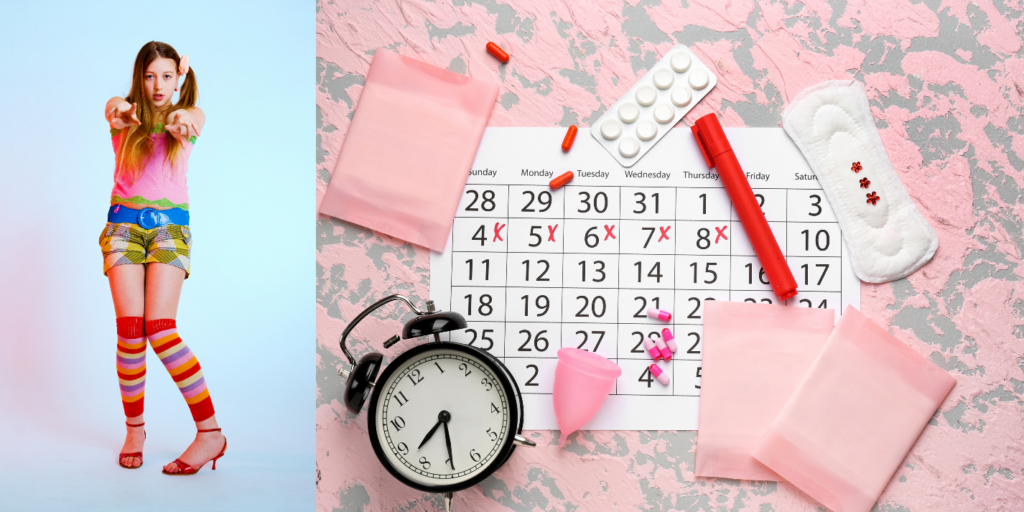First Period

Having your first period is a significant milestone in the life of a young lady. It marks the start of a lengthy period of life (approximately 40 years!) during which you may be fertile. This means that if you have sexual intercourse with another person, you may become pregnant. While you may have studied menstruation in school, you have some concerns. This article is aimed to assist you with all the details you need as you approach your first period.
The majority of females begin their menstrual cycle between the ages of 10 and 14, with an average of a little over 12 years old. It’s difficult to predict when your first period will occur. It typically occurs approximately two years after the onset of puberty (often breast growth) and approximately one year after you begin growing pubic hair. Also, you will notice a white or yellowish vaginal discharge in the months preceding your period.
Numerous factors are believed to influence the age of the first period, including the following:
- Nutrition
- Exercise
- Genetics
- Ethnicity
- Physical stature
- Geographical (northern climates vs. southern climates)
- Family income, size, and composition
- Education of parents
- Illness and anxiety
Over time, the average age of the first period has decreased. In 1900, the average age of the first period in the United States was between 14 and 15 years. Menstruation appears to have reached a plateau about 12 years of age.
There is no way to anticipate when you will have your first period, and there’s nothing you can do to force it to begin other than wait. Consult your family physician if you are concerned about your first period.
If you’re sexually active, you should consider the chance of becoming pregnant during your period. Indeed, you can become pregnant even if you have never menstruated, as ovulation can occur before your first period.
You need to do nothing specific to prepare for your first period other than have feminine hygiene items and over-the-counter pain medications such as ibuprofen or naproxen on hand. If you find yourself without menstruation products during your period, toilet paper will suffice in an emergency. If you start your period at school, your teacher or school nurse will provide you with a pantiliner or pad.
Your first menstruation should last between two and seven days. It may be very pale, with only a few brownish blood spots. Alternatively, it may begin and end more brownish but turn a brighter red on days of increased flow.
